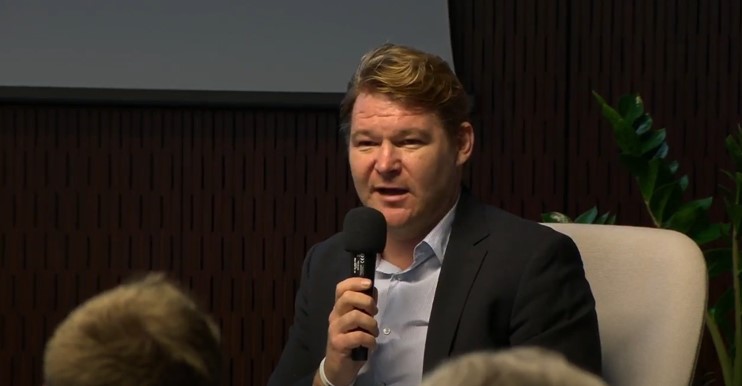The Freedom Movement party (Gibanje Svoboda) has indulged in probably the most chilling presentation of a local campaign in the history of independent Slovenia. At a press conference, which was also attended by Prime Minister Robert Golob, the head of the party’s electoral staff, Peter Majerle, explained to the whole of Slovenia that their candidate lists included candidates from the ranks of financial control (inspectors) and, worst of all, representatives of the judiciary. “The candidates come from various fields, from the judiciary and the economic sector to education and culture, as well as from financial control,” Majerle announced to the public. Are we on the threshold of a transition to a democratic dictatorship?
The statement is all the more chilling in light of Golob’s recent fascistic-like statement that they (the Freedom Movement or the transitional underground?) will not allow a candidate from the Slovenian Democratic Party (Slovenska demokratska stranka – SDS) to take over the position of President of the Republic. With this statement, Golob was, of course, referring to Anže Logar, who is running as an independent candidate with the signatures of the electorate.
To make matters worse, Golob announced that his party expected at least half of the candidates from his party to be elected. Notwithstanding the optimism in the government ranks, the announcement of a totalitarian future was immediately met with an indignant reaction from the opposition. “A regime with unity of all branches of power is back. Dark times. The chief of the electoral staff of the Freedom Movement explains how they have the representatives of the judiciary and financial control in their ranks. So that they can then “independently” judge and control us,” former Prime Minister Janez Janša wrote in a response on Twitter, attaching a video of the incident, which also appeared on YouTube shortly after that.
Will the Freedom Movement create an unconstitutional situation?
If it turns out that the Freedom Movement’s candidate list really includes representatives of the judiciary, meaning the judges, the Freedom Movement will be in direct conflict with the Constitution, which guarantees the separation of the branches of power. Article 133 of the Constitution, which guarantees the incompatibility of the judicial office with other roles, reads as follows: “The office of a judge shall not be compatible with the offices of other state bodies, local self-government bodies and political party bodies, and with other offices and activities for which this is provided for by law.” More specifically, if a judge were to stand as a candidate for a city councillor, this would result in the merger of the legislative branch of government at the municipal level with the judicial branch of government. And if a judge were elected as mayor, the executive branch of government would be merged with the judicial branch.
It does not get much clearer than that. If the competent authorities do not intervene, Slovenia will effectively see a merging of the legislative branch of power… with the judiciary!
Golob’s fascist-like threat
As we have already written above, the latest ominous announcement comes after the Prime Minister announced that they “will not allow a candidate of the Slovenian Democratic Party to enter the Presidential palace.”
One Twitter user pointed out the difference in the public’s reaction to what is happening: “Hypothetically – Janša is in power, and as the Prime Minister, he declares: “We will not allow a candidate from the Freedom Movement party to enter the Presidential palace.” What would happen then? Jenull and his protesters would burn down Ljubljana, the cultural workers would tear the flag apart, Milinkovič would call for a group suicide.”
The Council of the European Union warned us about this back in 1996
As early as in 1996, in a resolution entitled “Measures to dismantle the legacy of former communist totalitarian systems,” the Parliamentary Assembly of the Council of Europe already warned against the very phenomenon we are now, almost 30 years after the resolution had been adopted, witnessing in Slovenia. The third point of the resolution clearly states that if the structures of the former communist regime are not dismantled, the rule of an oligarchy and the velvet restoration of a totalitarian regime will follow. It is increasingly apparent that this is precisely what is happening in Slovenia. How much longer before Slovenia changes from a constitutional democracy to a democratic dictature?
Gal Kovač


